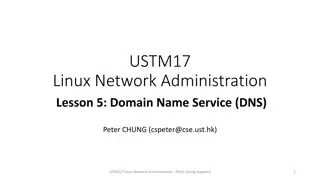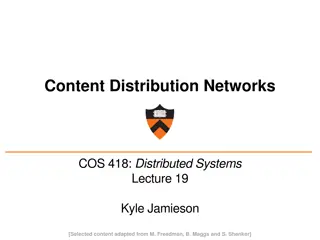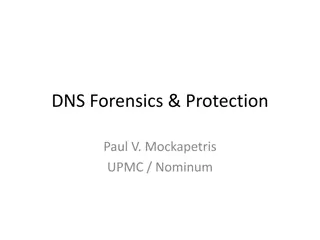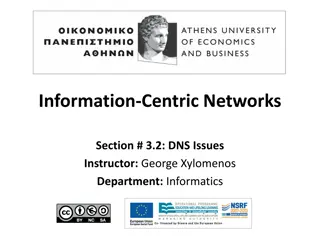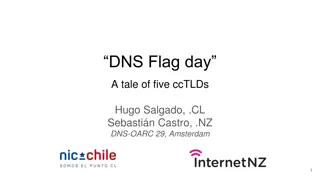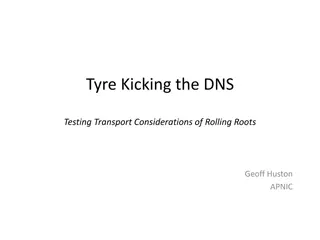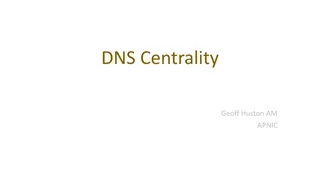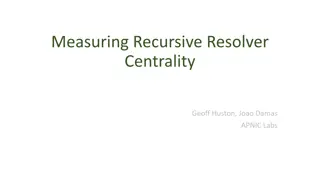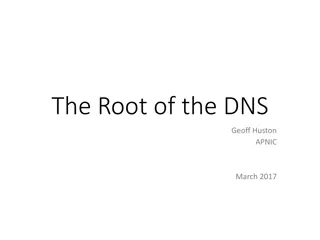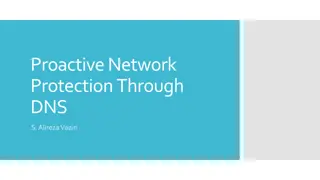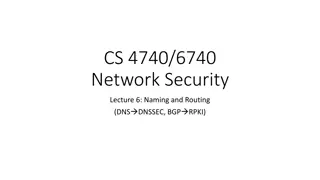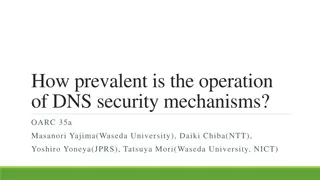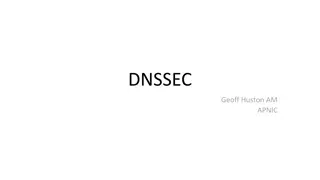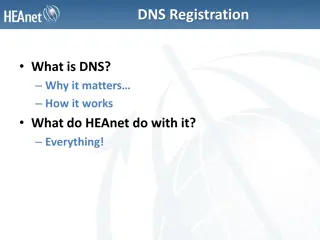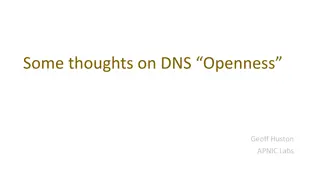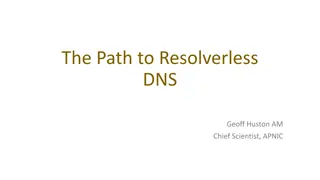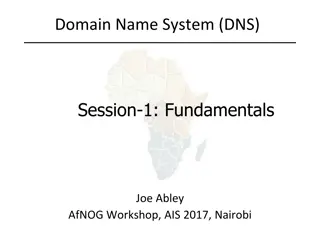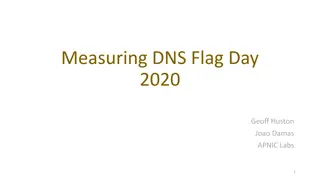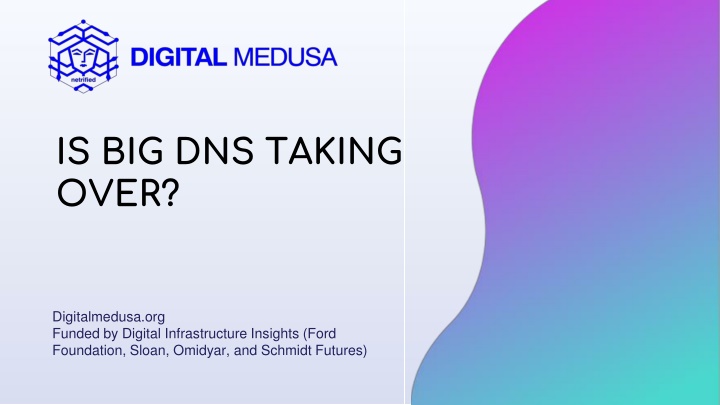
Impact of Public DNS Usage Trends
The preliminary report discusses the significant decrease in public DNS usage globally since 2022 and investigates potential reasons behind this phenomenon, such as governmental regulatory pressures and content moderation requirements. It also explores correlations between public resolver usage and political incidents, emphasizing regions with low Internet and press freedoms. The study aims to source additional data, work on a Blocking Global Tracker, and delve into correlations between ISP size and public DNS resolver adoption.
Download Presentation

Please find below an Image/Link to download the presentation.
The content on the website is provided AS IS for your information and personal use only. It may not be sold, licensed, or shared on other websites without obtaining consent from the author. If you encounter any issues during the download, it is possible that the publisher has removed the file from their server.
You are allowed to download the files provided on this website for personal or commercial use, subject to the condition that they are used lawfully. All files are the property of their respective owners.
The content on the website is provided AS IS for your information and personal use only. It may not be sold, licensed, or shared on other websites without obtaining consent from the author.
E N D
Presentation Transcript
IS BIG DNS TAKING OVER? Digitalmedusa.org Funded by Digital Infrastructure Insights (Ford Foundation, Sloan, Omidyar, and Schmidt Futures)
Preliminary report In short Based on APNIC LAB data, Since 2022, the use of public DNS services has halved in many regions. Study seeking to learn reasons for this drop in usage and global regulatory tracker of government requests to block domain name resolution. It also aims to explore whether there are any kinds of correlation between specific political incidents and changes in the use of public DNS resolvers
Low Internet and Press Freedoms, Higher usage of DNS resolvers We identified a high percentage of Internet users in regions with low Internet and Press freedoms, including Central Asia and Middle and West Africa, still using public DNS resolvers.
Correlation: Western Africa There was a negative correlation between Internet freedom index and usage of open resolvers in Western Africa. Where there was lower Internet freedom, there was a higher usage of public resolvers.
Hypothesis Our preliminary analysis shows a sharp decline in the use of public DNS resolvers globally. A hypothesis for this drop is an increase in regulatory pressures and content moderation requirements by the governments. While such requests might not directly order domain name blocking at the DNS resolver level, ISPs might find it easier and less costly to follow the blocking order through the DNS resolver.
Next steps 1. Source other data on the use of public resolvers 2. Work on the Blocking Global Tracker 3. Explore whether there are any correlations between the use of public resolvers and political incidents 4. Consider correlation between the size of the ISPs and public DNS resolver adoption
Questions 1. What other data sources can we use to explore this issue further? 2. What factors contributes to the public resolver usage trend?


